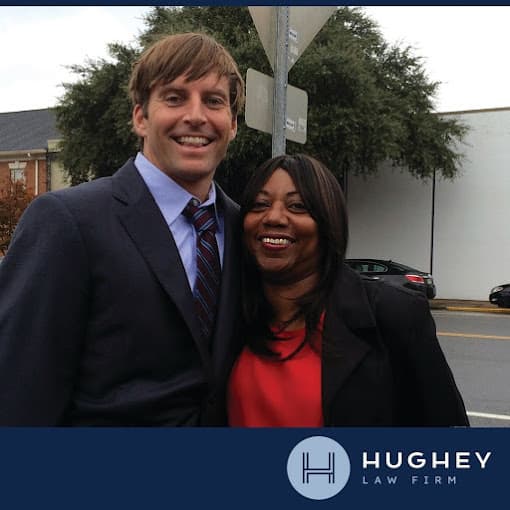Some of Our Settlements
Past settlements and judgments aren’t an indication of results in future cases.Of course, prior results do not guarantee future success. We can discuss your potential case outcome during a free consultation.

TYPES OF PERSONAL INJURY CLAIMS THAT WE HANDLE
OUR MT. PLEASANT, SC, PRACTICE AREAS
- Mt. Pleasant Personal Injury Lawyer
- Mt. Pleasant Wrongful Death Attorney
- Mt. Pleasant Truck Accident Lawyer
- Mt. Pleasant Trip & Fall Lawyers
- Mt. Pleasant Slip & Fall Lawyers
- Mt. Pleasant Car Accident Attorney
- Mt. Pleasant Elder Abuse Attorneys
- Mt. Pleasant Motorcycle Accident Attorney
- Mt. Pleasant Brain Injury Lawyer
- Mt. Pleasant Nursing Home Abuse Attorneys
The large majority of personal injury claims stem from negligence. Still, other legal questions and concerns can exist depending on the type of claim you have. The following are some common causes of personal injury claims that our firm handles.
AUTO ACCIDENTS
Vehicle accidents happen every day in or around the Mt. Pleasant area, and they can change a victim’s life in a single instant. One second, you are simply commuting home from work, and the next, you are in a world of chaos, in severe pain with a wrecked car and wondering what to do next.
Often, other negligent drivers cause crash-related injuries, but so can other, less-obvious parties. You want a car accident lawyer who knows how to investigate the cause of your crash and gather the evidence needed to support your liability claims.
TRUCK ACCIDENTS
Truck accident claims are similar to other auto accident cases but can be much more complex. Commercial trucks are highly complicated machines that require more care and attention to operate safely. The industry also involves technical federal regulations that do not come into play in consumer auto accident cases.
A single error by a truck driver can cause widespread devastation due to chain-reaction collisions, cargo spills, and more. Trucking companies that employ drivers may also be liable for crashes, and you can expect these companies to have legal teams and insurance companies fighting liability whenever possible.
MOTORCYCLE ACCIDENTS
Motorcyclists have little physical protection when they ride, and even helmets cannot provide absolute protection from head and brain injuries. This means that motorcycle accidents can often result in catastrophic injuries, which can lead to claims with particularly high values. Insurance companies regularly challenge the damages claimed by injured motorcyclists, so you need an attorney from the Hughey Law Firm who regularly handles high-value motorcycle crash claims.
HOSPITAL NEGLIGENCE
When you go to the hospital, you expect medical professionals to help diagnose and manage your health condition – not to worsen the situation. However, doctors and nurses can sometimes make serious mistakes that rise to the level of negligence and cause preventable injuries and complications. Reports indicate that medical negligence, including in hospitals, is the third-leading cause of death in recent years, and many more patients suffer avoidable infections, treatment errors, surgical errors, medication errors, bedsores, and slips and falls in hospitals.
NURSING HOME INJURIES
When you or a loved one goes to live in a nursing home, you expect staff to provide the necessary level of care and attention. Nursing homes, however, are often understaffed and getting more crowded by the day, which can lead to mistakes or even intentionally wrong behavior that leads to injuries. Neglect, physical abuse, sexual abuse, and emotional abuse all take place in nursing homes in and around Mt. Pleasant, and residents can suffer many types of harm as a result.
SLIP AND FALL INJURIES
You might not consider slip and falls a serious type of accident, but they can result in surprisingly severe injuries. Whether you are grocery shopping, visiting a friend at an apartment complex, walking across a parking lot, or getting seated at a restaurant, hazards can exist that cause you to slip and fall, and victims cannot always catch themselves. Slips and falls commonly cause concussions, fractures, back injuries, broken hips, and soft tissue injuries.
PREMISES LIABILITY
Property hazards can result in other types of accidents in addition to slips and falls, such as falls from heights, getting hit by falling objects, electrical accidents, toxic exposure, and more. In these cases, the business or property owner can be held liable for harm resulting from their negligence.
The U.S. National Center for Injury Prevention and Control says accidental injuries are the leading cause of death for people under 45 years of age. Injury-related deaths affect everyone, regardless of someone’s age, race, or economic status. Unfortunately, the problem continues to grow.

Hughey Law Firm Gets Results in Mt. Pleasant
Hughey Law Firm fights to get our clients justice in personal injury law cases. We’ve seen the physical and financial devastation our injured clients face. Additionally, our legal team knows how these incidents impact families. When you hire Hughey Law Firm, you get seasoned professionals that will argue your case effectively. We’ve won more than $195 Million in claims on our clients’ behalf.
Nathan Hughey, the firm’s senior lawyer, leads our team. He has argued before the South Carolina Supreme Court, and holds a license with the U.S. Court of Appeals for the Fourth Circuit.
Where is Hughey Law Firm Located?
Mt. Pleasant Office:
1311 Chuck Dawley Blvd. Suite 201 Mt. Pleasant, SC 29464
Phone: (843) 790-2808

Mt. Pleasant Accident Statistics
In one recent year, the State of South Carolina reported 922 fatal vehicle crashes, resulting in 1,001 deaths. With a population of just over 92,000 people, Mt. Pleasant, SC, only reported two deaths from crashes involving 11 vehicles in one year.
Highway 41 congestion is an ongoing problem in the Mt. Pleasant area, and accidents continue to happen at several major intersections. In Charleston County, these areas have been named the most dangerous intersections for traffic collisions:
- 1. I-26 and Ashley Phosphate Road;
- 2. I-26 and I-526;
- 3. Rivers Avenue and Otranto Road;
- 4. Rivers and Ashley Phosphate;
- 5. Sam Rittenberg Boulevard and S.C. 61;
- 6. U.S. 17 and Houston Northcutt Boulevard;
- 7. I-26 and U.S. 78;
- 8. I-526 and North Rhett;
- 9. Rivers and Greenridge Road;
- 10. I-26 and Cosgrove Avenue;
Source: scdps.sc.gov
How Our Mt. Pleasant Personal Injury Attorneys Can Help You

Anyone has the right to handle an injury claim on their own, but a trusted injury attorney handling your claim can:
- Evaluate your rights – Determine who caused your accident and whether you might hold someone else liable for your losses.
- Identify all liable parties – Sometimes, the liable party seems fairly obvious, but it can be more complicated. Liable parties can involve individuals, employers of negligent employees, manufacturers, business and property owners, among others.
- Calculate damages – Having a clear and accurate understanding of your past losses, future estimated costs, and intangible losses is critical to getting full financial recovery.
- Handle the insurance process – Insurance companies are businesses, so they are looking to maximize profits by limiting payouts. Any communications can go against you, and insurers are certain to try to convince you to accept an offer that is much too low. Having a lawyer handling the process helps to guarantee that you receive what you deserve.
- Take your case to court when needed – In particularly complicated or high-value cases, the insurer might make reaching a favorable settlement impossible. In this situation, the right lawyer will not hesitate to escalate the matter and pursue a lawsuit in civil court.
Our legal team can do all of the above, taking the stress off of you and allowing you to focus on your physical recovery from your injuries.
Hughey Law Firm knows how difficult it is for Mt. Pleasant’s injured victims to repair their lives after a severe injury. Survivors face enormous challenges because of their injuries. Some victims must deal with permanent physical and psychological problems that incapacitate them. Others struggle with painful disabilities that can cause them to lose a physically demanding job. Most injured people must pay expensive medical and other bills related to the accident.
Has a negligent person harmed you? Fight for justice. Schedule a free consultation with Hughey Law Firm. Our Mt. Pleasant personal injury attorneys will help you get the justice you deserve.
Contact us or call (843) 806-0979.
Types of Injuries in Mt. Pleasant Personal Injury Accidents
The most serious injuries injured victims can suffer are catastrophic ones. These injuries are severe injuries to the brain, spinal cord, limbs, or vital organs.
The following are some of the catastrophic injuries victims can endure:
- Traumatic brain injury (TBI);
- Amputation;
- Eye injuries;
- Back injuries;
- Burns;
- Spinal cord injury (SCI);
- Paralysis (paraplegia and quadriplegia);
- Organ damage;
- Shoulder injuries; and
- Foot injuries.
Do You Have a Mt. Pleasant Personal Injury Case?
 South Carolina requires plaintiffs to establish four elements of negligence to prove a personal injury claim. Injury victims must prove a defendant was negligent for their claim for damages to succeed.
South Carolina requires plaintiffs to establish four elements of negligence to prove a personal injury claim. Injury victims must prove a defendant was negligent for their claim for damages to succeed.
1. THE DEFENDANT OWED A DUTY OF CARE TO THE PLAINTIFF.
The defendant’s care of duty depends on the case. For example, a nursing home is responsible for overseeing a resident’s care. Nursing homes that don’t follow a proper standard of care may harm someone. Injured patients can file a nursing home abuse case against the owner of the home.
Another type of personal injury case involves premises liability law. Property owners must keep their premises free from hazards. Owners or managers who don’t remove dangers from their premises can be liable for injuries that occur on the property. For instance, companies must clear ice from sidewalks on their premises. If a person slips and falls on the ice, they can sue the property owner for negligence.
Other cases can involve drivers who fail to follow South Carolina’s Department of Motor Vehicles laws. A plaintiff can sue a reckless driver if their negligent actions caused an accident and injured the plaintiff.
2. THERE WAS A BREACH OF DUTY.
Whether there is a legal breach of duty depends on the circumstances involved. For example, someone who is texting while driving and runs a red light is breaching their duty of care to other drivers and people on the road. If the distracted driver causes an accident, they can be held responsible for the injuries they cause.
3. THE VICTIM MUST SHOW THE DEFENDANT’S BREACH OF DUTY HARMED THEM.
A breach of duty relates to the defendant’s obligation to meet a legal responsibility. The plaintiff must prove the defendant’s actions resulted in serious damages to their body, property, or other areas. The victim must substantiate their claims with witnesses, medical records, and other legal proof.
4. THERE MUST BE DAMAGES RESULTING FROM THE DEFENDANT’S NEGLIGENCE.
The victim must suffer significant losses because of the injuries they received. They can be economic or non-economic losses as described below.
What Should You Do After an Accident in Mt. Pleasant?

Your first priority after an accident is to receive the medical care you need.
Even if you think your injuries are minor or you “feel fine,” you should get medical attention to protect your health and your potential legal rights. It is common after a car accident or a fall for your body to release adrenaline as a natural reaction to fear and stress. Adrenalin can mask your symptoms, so you may not notice any injuries.
If you are able to take action at the accident scene, try to gather information and evidence to support your legal claim. Exchange contact and insurance information with other drivers or the property owner if you fell and ask for contact details from any eyewitnesses. Also, take photos of the scene, the vehicles or location involved, your injuries, and any other important aspects that will help show how the accident happened and who is at fault.
After you have received initial medical attention, speak with our Mt. Pleasant personal injury lawyers so you understand your legal rights and options. You do not want to do anything that will jeopardize your legal standing. This includes giving recorded statements to insurance companies, discussing your accident on social media, or signing documents without legal review.
Our consultations and case reviews are free of charge, so you have nothing to lose by meeting with our legal team. Let us protect you from the start by meeting as soon as possible.
HOW OUR MT. PLEASANT PERSONAL INJURY ATTORNEYS CAN HELP YOU
Anyone has the right to handle an injury claim on their own, but when you work with a trusted injury attorney at Hughey Law Firm, we can improve your chances of recovering the maximum amount of compensation by:
- Evaluating your rights – We can determine who caused your accident and who you might hold liable for your losses.
- Identifying all liable parties – Sometimes, the liable party seems fairly obvious, but some situations can be more complicated. Liable parties can include individuals, employers of negligent employees, manufacturers, businesses, and property owners, among others.
- Calculating damages – A clear and accurate understanding of your past losses, future estimated costs, and intangible losses is critical to ensuring a full financial recovery.
- Handling the insurance negotiation process – Insurance companies are businesses that want to maximize profits by limiting payouts. Your statements can be used against you, and insurers will try to convince you to accept a much lower offer than you deserve. A skilled personal injury lawyer can handle the claim process and negotiate with the insurance adjusters on your behalf to help you receive what you deserve.
- Taking your case to court when needed – In particularly complicated or high-value cases, the insurer might be unwilling to offer a reasonable settlement amount. In this situation, our experienced lawyers will not hesitate to escalate the matter and pursue a lawsuit in civil court.
Our legal team can do all of the above, taking the stress off you and allowing you to focus on your physical recovery.
What Types of Compensation Can I Receive After a Mt. Pleasant Accident?
You can collect several types of damages in a personal injury case.
General Damages – This compensation redresses the defendant’s negligent actions. You must establish a clear link between their injury and the defendant’s behavior, General damages may include:
- Pain and suffering,
- Physical disfigurement,
- Mental anguish,
- Lower quality of life,
- Emotional distress
Special Damages – This compensation covers monetary losses you incurred due to the defendant’s actions. These include out-of-pocket expenses. Special damages can include:
- Replacing or repairing any lost property
- Lost earning capacity
- Lost wages
- Past and future medical expenses
- Loss of irreplaceable items
Other Damages – Decedents’ families can sue for damages if their relatives died due to a negligent, reckless, or intentional act. These Wrongful death damages can include:
- Funeral expenses,
- Lost future financial contributions,
- Loss of companionship or consortium
How Much is Your Case Worth?
Every case is different. Each person’s injuries are unique to them. Remember, while two people may suffer a broken leg, their recovery will differ based on age, physical condition, and other factors. Therefore, trying to estimate the value of a case without a full understanding of the injuries a victim sustained is impossible.
When we meet during a free consultation, we will ask about your unique circumstances and help you understand what your case may be worth. To learn more, reach out to our compassionate team today.
How Long Do You Have to File a Mt. Pleasant Personal Injury Lawsuit?
While it is always a good idea to file an insurance claim as early as possible, residents of South Carolina have up to three years to file an accident injury lawsuit. There may be exceptions to the three-year deadline, so it’s crucial to understand the law, which is explained more thoroughly in S.C. Code Ann. section 15-3-530.
While three years sounds like a long time, it could take months before you know the full extent of your medical needs and your financial losses. That is why you should seek legal advice early on. An experienced attorney at the Hughey Law Firm can ensure you do not miss any important deadlines and properly file your civil lawsuit before the statute of limitations runs.
How Much Does an Experienced Mt. Pleasant Personal Injury Lawyer Cost?
The personal injury lawyers at the Hughey Law Firm offer free case evaluations to all injury victims. Once this process is complete, our team will explain your legal options so you can decide what works best for you and your family. Then, you will have to decide if you want to partner with us regarding your personal injury claim.
If you hire one of our attorneys, they will present you with a detailed retainer agreement explaining all fees and costs that may apply to your claim. However, unless we succeed in obtaining a settlement or verdict on your behalf, you will not pay attorney’s fees. This is called a contingency fee arrangement and is common among most personal injury attorneys.
When a lawyer works on a contingency fee basis, they work on all aspects of your case without you worrying about paying an hourly attorney’s fee or a retainer upfront. The attorney is paid when your claim is resolved; if you do not receive compensation, you do not pay attorney’s fees. No win = no fee.
When you have suffered an injury, or your family has lost a loved one due to another person’s negligent or deliberate act, contact our Mt. Pleasant personal injury attorneys. After your free case evaluation, you can decide the best way forward for you and your family.
How Long Will Your Mt. Pleasant Personal Injury Case Take?

This is another question with no easy answer. It depends on who is involved and whether liability is clear. In truck accidents or premises liability cases, more than one party may bear liability for your injury. When more than one party is involved, the claims grow more complicated, but you may have more than one source of compensation to help cover your losses.
An insurance company is likely to make an initial settlement offer after you file a claim. Often, the amount of the settlement is well below what is acceptable. The negotiation portion of your claim begins at this point. In some cases, insurers negotiate in good faith, while others try to minimize your claim.
If an insurer is unwilling to negotiate or offer a fair settlement offer, the matter may have to go to trial. Cases that go to court usually take longer.
How Does a Mt. Pleasant Personal Injury Claim Work?
Insurance company adjusters can easily take advantage of personal injury victims. An adjuster works for the insurance company, and their job is to help the insurer pay as little as possible for your claim. They do not want you to hire a lawyer even though they have a team of legal experts helping them.
When you partner with a dedicated Mt. Pleasant personal injury at Hughey Law Firm, your attorney can help you in many ways, including:
- Investigation – You may not know where to start investigating how your accident occurred and who is liable for your injuries. An experienced lawyer at Hughey Law Firm will know what steps to take and what evidence is needed to prove your claim.
- Preserving evidence – You may need to preserve traffic or surveillance videos that captured your incident on the day it happened. Or, you may need to involve an expert to reconstruct a crash. An attorney with experience investigating these cases will know how to request and preserve important evidence.
- Interviewing witnesses – An attorney can interview witnesses under oath to strengthen your case. This can reveal crucial details you may not be aware of regarding the accident.
- Negotiation strength – An insurance company knows that lawyers who understand the law and the normal process for personal injury claims are less likely to tolerate unnecessary delays and scare tactics than a victim who is not represented. They also know that they typically cannot get away with making unreasonably low settlement offers if there is an attorney involved.
These are a few reasons why hiring an experienced lawyer with a proven history of getting results for their clients makes sense. While past successes do not always guarantee future success, you can feel confident those successes did not happen by mistake.
Contact the Mt. Pleasant Personal Injury Lawyers at Hughey Law Firm to Understand Your Legal Rights and Options
Hughey Law Firm knows how difficult it can be for people injured in Mt. Pleasant to repair their lives after a severe injury. Survivors face enormous challenges because of their injuries. Some victims must deal with permanent physical and psychological problems that incapacitate them. Others struggle with painful disabilities that can cause them to lose a physically demanding job. Most injured people must pay expensive medical and other bills related to the accident.
If a negligent person has harmed you, fight for the justice you deserve. Schedule a free consultation with Hughey Law Firm. Our Mt. Pleasant personal injury attorneys will help you get the justice you deserve.
Contact us or call (843) 806-0979.
Additional Resources
Hospitals in Mt. Pleasant
- East Cooper Medical Center – 2000 Hospital Dr, Mt Pleasant, SC 29464
- Roper St. Francis Mount Pleasant Hospital – 3500 N Hwy 17, Mt Pleasant, SC 29466
- Vibra Hospital of Charleston – 1200 Hospital Dr, Mt Pleasant, SC 29464
Courthouses in Mt. Pleasant
- Mt Pleasant Municipal Court – 100 Ann Edwards Ln, Mt Pleasant, SC 29464
- Old Berkeley County Courthouse – 331 King St, Mt Pleasant, SC 29464
Neighborhoods We Serve in Mt. Pleasant
Alston Point (29464), Back Bay Village (29464), Bayview Acres (29464), Belle Hall (29464), Bentley Park (29464), Brickyard Plantation (29466), Brookgreen Meadows (29412), Carol Oaks (29466), Carolina Park (29466), Center Lake (29464), Chadbury Village (29466), Charleston National (29466), Chelsea Park (29464), Cooper Estates (29464), Coopers Landing (29464)
What Is Personal Injury Law?
You probably have questions if you suffered an injury caused by the negligent or deliberate behavior of another person. Too often, victims do not know where to turn for answers. We have compiled a list of frequently asked questions about personal injury cases in the Mt. Pleasant area to help ensure victims have accurate information.
Remember, in all personal injury cases, preserve your rights. The best way to do this is to contact an experienced personal injury lawyer to make sure you understand your rights and the steps you can take to get a settlement for your injuries.
What Types of Accidents Result In Personal Injury Claims?
You can file a personal injury claim anytime you suffer an injury because of another person’s action or inaction. Some of the most common claims include:
- Auto, motorcycle, and truck accidents – When a roadway accident injures someone because of the careless actions of another driver, they can file a personal injury claim.
- Assisted living and nursing home injuries – If your loved one suffered an injury due to negligent care, or deliberate action by someone in a care facility, you can file a personal injury claim on their behalf.
- Premises liability cases – When someone enters a building for any legal purpose, the facility owner must ensure their safety. When they fail and injure someone, a basis for filing a personal injury claim usually exists.
- Slip and fall injuries – When you fall on someone’s property because they failed to properly maintain the facility, you could file a personal injury claim to obtain compensation for your injury.
- Workers’ compensation claims – If you suffered a workplace injury and need help with a workers’ compensation claim, or must hold a third party liable for the injury you sustained, call us.
These are some of the areas that personal injury claims cover. Remember, if you lost a loved one in any accident that a negligent or deliberate act caused, you can file a wrongful death claim.
What Steps Which I Take After An Accident?
Yes. In addition to ensuring you have the contact information for any witnesses, and anyone responsible for your injury, you must get medical attention. Even if you think your injuries are minor, or you “feel fine,” this is to protect you. Your body has a natural reaction to fear, which is common after a car accident or a fall, so you may not notice any injuries.
Once you have had medical attention, speak with our personal injury lawyers so you understand your legal rights and options. You do not want to do anything that will jeopardize your legal standing. This includes making recorded statements to insurance companies, discussing your accident on social media, or signing documents without legal review.
How Much Is A Typical Personal Injury Case Worth?
Every case is different. Each person’s injuries are unique to them. Remember, while two people may suffer a broken leg, the time they need to heal is different based on their age, their physical condition, and other factors. Therefore, trying to estimate the value of a case without a full understanding of the injuries a victim sustained is impossible.
Are There Certain Categories of Compensation Included In A Claim?
Yes. The majority of personal injury claims contain the same categories of damages. They generally include:
- Medical costs due to the injury – Victims may have health insurance that does not cover all of their out-of-pocket medical costs. This may include tests, prescription medication, in-hospital care, follow-up visits, and may even include transportation to and from visits to doctors. If you require future care, your legal team may also include future estimated medical costs.
- Lost wages and benefits – When you must recover from an injury and can’t work, your income will diminish. You may also have to use banked time such as personal days or vacation time while you wait for disability benefits. You can include these losses in your personal injury claim, along with other lost benefits. If your injury means you can’t work at your normal job, you may also include estimated future lost wages.
- Unexpected expenses – In some cases, a victim may need to change the structure of their home to accommodate their injury. These modifications are costly, and you should include them in a personal injury claim.
Keep in mind, as we previously stated, every injury is different. Claims vary depending on the injury and the normal expenses associated with it. Your personal injury lawyer can file a complete claim for you.
How Much Time Will It Take to Resolve A Personal Injury Claim?
This is another question with no easy answer. It depends on who is involved. In truck accidents or medical malpractice cases, more than one party may bear liability for your injury. When more than one party is involved, the claims grow more complicated.
An insurance company is likely to make an initial settlement offer after you file a claim. Often, the amount of the settlement is well below what is acceptable. The negotiation portion of your claim begins once the insurer has made the initial offer. In some cases, insurers will negotiate in good faith, while in others they will minimize your claim.
If an insurer is unwilling to negotiate, then the matter may have to go to trial. Cases that go to court usually take longer.
Do I Really Need To Hire A Lawyer To File A Personal Injury Claim?
Yes. Insurance company adjusters can easily take advantage of personal injury victims. An adjuster works for the insurance company, and their job is to help the insurer pay as little as possible for your claim. They do not want you to get a lawyer even though they have a team of legal experts helping them.
Your attorney can also help you in other ways including
- through:
- Investigation – You may not know where to start investigating who is liable for your injuries, but an experienced lawyer will know what steps to take.
- Preserving evidence – You may need to preserve traffic or surveillance videos that recorded the incident. An attorney with experience investigating these cases will know who to issue demands to for the preservation of evidence.
- Interviewing witnesses – An attorney can interview witnesses under oath to strengthen your case. This can reveal crucial details you may not be aware of regarding the accident.
- Negotiation strength – An insurance company knows a lawyer who understands the laws and the normal process for personal injury claims is less likely to put up with unnecessary delays than a victim might. They also know that they typically cannot get away with making unreasonably low offers to settle if there is an attorney involved.
These are a few reasons why it makes sense for you to hire an experienced lawyer with a proven history of getting results for their clients. While past successes do not always guarantee future success, you can feel confident those successes did not happen by mistake.
What Deadlines Do I Need To Worry About With Personal Injury Claims?
While it is always a good idea to file a claim as early as possible, residents of South Carolina have three years to file an accident injury claim. This is explained more thoroughly in S.C. Code Ann. section 15-3-530. Remember, while three years sounds like a long time, it could take months before you know the extent of your medical treatment and your financial losses. That is why you must seek legal advice early on—an attorney can ensure you do not miss any important deadlines and properly file your claim.
What Is The Standard Process For A Personal Injury Claim?
First, a victim should be aware that nearly all personal injury claims settle out of court. Most insurance companies do not wish to invest time or money in a long, drawn-out battle over an injury.
If the insurer’s client caused your injury, they have a vested interest in resolving your claim and putting the matter to rest.
However, in those rare cases where negotiations come to a standstill, then the process would look like this:
- Pre-Suit Investigation and Litigation – If the attorney can’t secure an acceptable settlement from the insurance company, then you may file a lawsuit.
- Filing the Summons and Complaint – We use the South Carolina Rules of Civil Procedure. These rules govern how to file the suit and serve notice to each defendant. Any error in this paperwork can result in the court dismissing a claim.
- Discovery – This is the process used to gather information. Both plaintiff and defendant in a personal injury case share information, conduct depositions, and obtain as much information as possible to validate their positions.
- Mediation – Most South Carolina counties require assisted negotiation within one year of filing a lawsuit. This process uses a third-party lawyer who may help settle the claim outside of court.
- Trial – if there is no acceptable result from mediation, the case would then go to court and be presented to a jury.
Working with an attorney is typically your best option to help ensure a smooth claims process. Any errors could invalidate your claim and force you to start from the beginning.
If I Hire A Lawyer, Will I Lose Control Over Settlement Offers?
No. The notion that clients lose control over settlements is a myth that those who do not understand the role of an attorney in the personal injury claims process may perpetuate. Sometimes, corporate lawyers for insurance companies will tell you that to get you to forego a lawyer.
The fact is, the role of a personal injury lawyer is one of a fiduciary. This means they must act in the best interest of their clients at all times.
Anytime the insurance company makes a settlement offer, your attorney must present it to you whether they agree with the amount or not. They can advise you of the pros and cons of accepting an offer, but ultimately, the decision to accept a settlement offer or challenge it remains in your control at all times.
How Much Will A Lawyer Charge To Handle A Personal Injury Claim?
A personal injury lawyer will typically offer a victim a free case evaluation. Once this process is complete, an attorney will explain your legal options so you can make an informed decision about what works best for you and your family. Then you will have to decide if you want them to represent you for handling your personal injury claim.
Should you opt to hire an attorney, they will present you with a detailed retainer agreement that explains all fees and costs that may apply to your claim. However, unless the law firm succeeds in obtaining a settlement on your behalf, you will not need to pay attorney’s fees. This is commonly called a contingency fee, and is common amongst personal injury attorneys.
When a lawyer works on a contingency fee basis, they work on all aspects of your case without you worrying about paying an hourly attorney’s fee upfront. The attorney gets paid when your claim settles and if you do not get a settlement, then you do not pay attorney’s fees.
When you have suffered an injury, or your family has lost a loved one due to a negligent or deliberate act of another person, contact our Mt. Pleasant personal injury attorneys. After your free case evaluation, you can decide the best way forward for your family and get answers to your other questions.
Injured victims should be familiar with South Carolina’s comparative fault rule. This system awards personal injury damages based on the percentage of fault of each litigant has. The defendant’s responsibility must be 60 percent or more for plaintiffs to collect damages. You won’t collect any damages if you share equal blame, or more fault than the defendant.
Additionally, judges can reduce your compensation if you share some responsibility for the injury based on your percentage of fault.
Personal injury cases have a lower level of proof than criminal cases. For example, a jury could acquit a defendant of a criminal charge if the burden of proof is too low to qualify as beyond a reasonable doubt. In a civil case, however, the plaintiff must only meet a preponderance of evidence standard: personal injury plaintiffs can present the same evidence and still collect judgments.
Defendants try to reduce their liability by claiming the victim was partly to blame. Some companies will send insurance investigators or lawyers to visit with the plaintiff. These professionals may appear to sympathize with the victims, but often ask people to sign written or oral statements before they hire legal counsel. The company’s attorneys use this evidence to undermine the plaintiff’s case.
Don’t provide a statement to anyone before hiring your own legal team. Refer any company representative that wants to speak with you to your attorney.
Personal injury law allows victims to sue for injuries they received due to accidents, negligent acts, or other incidents. The law’s purpose is to make injured victims “whole” through financial compensation. Relatives of decedents can also bring wrongful death lawsuits against liable defendants.
There can be several liable parties in personal injury lawsuits.
Types of personal injury lawsuits can include:
- Assault and battery: A defendant can be liable for any physical attack they commit against others.
- Car accidents: These incidents make up most personal injury cases. They occur when careless drivers don’t follow road safety rules.
- Dog bites – Most states hold dog owners for any injuries their pet may cause other people. South Carolina’s Code 47-3-110 addresses dog bites.
- Medical malpractice: Healthcare professionals that don’t provide competent care may be negligent under the law.
- Nursing home abuse: Doctors, nurses, and other workers can be liable for patients’ injuries and deaths.
- Product liability cases: Plaintiffs can sue companies that sells a defective product that injures them.
- Slip and fall accidents: These incidents fall under premises liability law. An owner has a duty to keep their property safe. If they don’t, a plaintiff can sue them if the owner’s carelessness harmed them.
South Carolina has a statute of limitations on personal injury lawsuits. You have three years to file your case from the date of the injury, according to S.C. Code Ann. Section 15-3-530. Those who don’t file in time can lose their chance to sue for damages. You should seek legal counsel when someone has injured you. Contact an expert personal injury attorney like the Hughey Law Firm in Mt. Pleasant.
South Carolina requires plaintiffs to meet four areas in proving personal injury claims. Victims must prove defendants are negligent for their claim for damages to succeed.
1. The defendant owed a duty of care to the plaintiff.
The defendant’s care of duty depends on the case. For example, a physician has a responsibility to oversee a patient’s care. Doctors that don’t follow a proper standard of care may harm someone. Hurt patients can file a medical malpractice case against the defendant.
Another type of personal injury tort cases involves premises law. Property owners must keep their premises free from hazards. Those that don’t remove dangers from their area are liable for negligence. For instance, companies must clear ice from sidewalks on their premises. If a person slips and falls on the ice, they can sue the property owner for negligence.
Other cases can involve drivers that fail to follow South Carolina’s Department of Motor Vehicles laws. A plaintiff can sue a reckless driver if their negligent actions caused an accident.
2. There was a breach of duty.
Their breach of duty will depend on the circumstances of a care. For example, licensing boards require doctors to follow protocols for medical procedures. They must also administer treatment for conditions before they become serious. For example, a diabetes patient may need insulin when their blood sugar spikes. Doctors who don’t follow standard protocols may have breached their duty to a patient.
3. The victim must show the defendant’s breach of duty harmed them.
A breach of duty shows the defendant failed to meet a legal responsibility. The plaintiff must prove the defendant’s actions resulted in serious damages to their body, property, or other areas. The victim must substantiate their claims with witnesses, medical records, and other proof.
4. Tangible damages resulting from the defendant’s negligence.
The victim must suffer significant damages because of the injuries they received. They can be economic or non-economic losses.
The most serious injuries that injured victims can suffer are catastrophic ones. These injuries are severe injuries to the brain, spinal cord, limbs, or vital organs.
The following are some of the catastrophic injuries victims can endure:
- Traumatic brain injury (TBI);
- Amputation;
- Eye injuries;
- Back injuries;
- Burns;
- Spinal cord injury (SCI);
- Paralysis (paraplegia and quadriplegia);
- Organ damage;
- Shoulder injuries; and
- Foot injuries.
You can collect several types of damages in a personal injury case.
General Damages – This compensation redresses the defendant’s negligent actions. You must establish a clear link between their injury and the defendant’s behavior, General damages may include:
- Physical pain and suffering
- Medical costs
- Physical disfigurement
- Mental anguish
- Lower quality of life
- Emotional distress
Special Damages – This compensation covers monetary losses you incurred due to the defendant’s actions. These include out-of-pocket expenses. Special damages can include:
- Replacing or repairing any lost property
- Lost earning capacity
- Lost wages
- Past and future medical expenses
- Loss of irreplaceable items
Other Damages – Decedents’ families can sue for damages if their relatives died or suffered serious disability due to a negligent, reckless, or intentional act. These damages can include:
- Wrongful death
- Loss of companionship or consortium
Hughey Law Firm in Mt. Pleasant can handle your case on a contingency basis. We’ll only collect our fees from any judgment or settlement you receive if we win your case.



